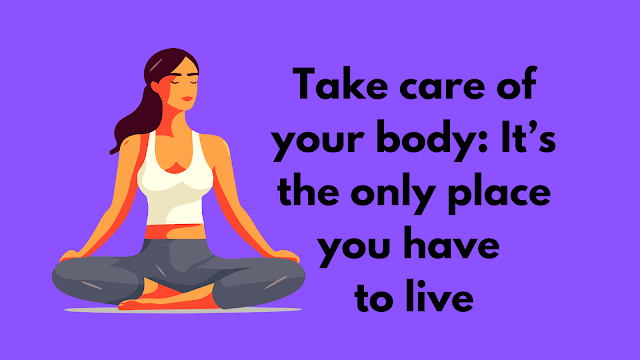Introduction “Your thoughts create your reality” often sounds like a spiritual phrase—beautiful, but hard to prove. For years, it was placed in the same category as affirmations and motivational quotes. Yet something interesting is happening in modern science. Quantum physics, a field known for its precision and complexity, is beginning to echo a similar idea, not as belief, but as observation. This does not mean thoughts magically control the universe. It means reality may be more interactive than we once believed. At the smallest levels of existence, the act of observation, interaction, and interpretation appears to influence outcomes. And that has powerful implications for how we understand the mind. When you look at these discoveries carefully, a new perspective emerges. Your mind may not be a passive viewer of life. It may be an active participant in shaping how reality unfolds for you. The Observer Effect Shows That Awareness Matters...
Introduction
In the hustle and bustle of our daily lives, it's easy to overlook one crucial aspect of our existence – our bodies. We often prioritize work, relationships, and various commitments, neglecting the very vessel that carries us through life. However, it's essential to remember that our bodies are not just a means to an end; they are our lifelong companions, and taking care of them should be a top priority. As the saying goes, "Take care of your body; it's the only place you have to live." In this article, we'll explore why this mantra is so vital and provide practical tips for nurturing your physical well-being.1. The Body as Your Home
Imagine your body as a house in which you reside throughout your life. Just like you would maintain your home to ensure it's a comfortable and safe place to live, you must care for your body to enjoy a fulfilling and healthy life. Neglecting your body's needs can lead to health issues, discomfort, and decreased overall quality of life.
2. Physical Health Equals Mental Health
There's an intricate connection between physical and mental health. Neglecting your body's needs can contribute to stress, anxiety, and depression. Conversely, engaging in regular physical activity, maintaining a balanced diet, and getting enough sleep can help boost your mood and reduce the risk of mental health issues. When you prioritize your physical well-being, you're also investing in your mental and emotional health.
3. Preventing Future Health Issues
Taking care of your body now is an investment in your future. By maintaining a healthy lifestyle, you can reduce the risk of chronic diseases such as diabetes, heart disease, and obesity. These conditions often develop over time due to poor lifestyle choices, so making healthy decisions today can significantly impact your long-term health.
4. Increased Energy and Productivity
When your body is well-nourished and physically active, you'll experience increased energy levels and enhanced productivity. Regular exercise boosts circulation, delivering oxygen and nutrients to your cells more efficiently. This can lead to better concentration, improved cognitive function, and increased overall vitality.
5. Building Resilience
Your body has an incredible ability to adapt and recover when given the right care. Proper nutrition, exercise, and rest all contribute to building physical resilience. This means you'll be better equipped to handle life's challenges, recover from illness or injury more quickly, and enjoy a higher quality of life as you age.
Strive to include physical activity in your routine. Aim for a minimum of 150 minutes of moderate-intensity aerobic exercises or 75 minutes of vigorous-intensity aerobic activities every week. Additionally, engage in muscle-strengthening exercises on two or more days during the week.
2) Embrace a Balanced Diet:
Make conscious food choices by prioritizing a diverse range of fruits, vegetables, whole grains, lean proteins, and healthy fats in your diet. It's essential to limit your consumption of processed foods, sugar, and excessive salt.
3) Give Sleep Its Due Importance:
Allow your body to rejuvenate and recuperate by targeting 7-9 hours of restful sleep each night. Prioritizing quality sleep contributes significantly to your overall well-being.
4) Hydrate for Health:
Support your body's functions and maintain optimal health by drinking an ample amount of water throughout the day. Staying hydrated is a simple yet effective way to care for your body.
Your body has an incredible ability to adapt and recover when given the right care. Proper nutrition, exercise, and rest all contribute to building physical resilience. This means you'll be better equipped to handle life's challenges, recover from illness or injury more quickly, and enjoy a higher quality of life as you age.
Practical Tips for Taking Care of Your Body
1) Incorporate Regular Exercise:Strive to include physical activity in your routine. Aim for a minimum of 150 minutes of moderate-intensity aerobic exercises or 75 minutes of vigorous-intensity aerobic activities every week. Additionally, engage in muscle-strengthening exercises on two or more days during the week.
2) Embrace a Balanced Diet:
Make conscious food choices by prioritizing a diverse range of fruits, vegetables, whole grains, lean proteins, and healthy fats in your diet. It's essential to limit your consumption of processed foods, sugar, and excessive salt.
3) Give Sleep Its Due Importance:
Allow your body to rejuvenate and recuperate by targeting 7-9 hours of restful sleep each night. Prioritizing quality sleep contributes significantly to your overall well-being.
4) Hydrate for Health:
Support your body's functions and maintain optimal health by drinking an ample amount of water throughout the day. Staying hydrated is a simple yet effective way to care for your body.


Comments
Post a Comment
Please do not add any spam link in the comment box